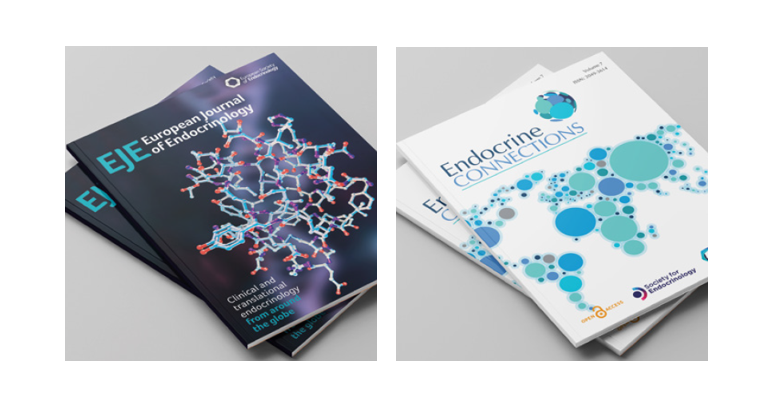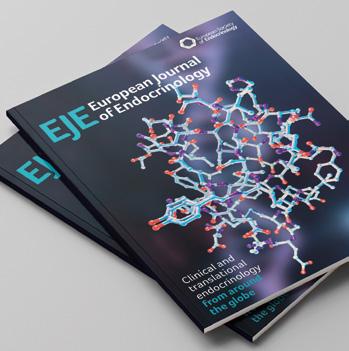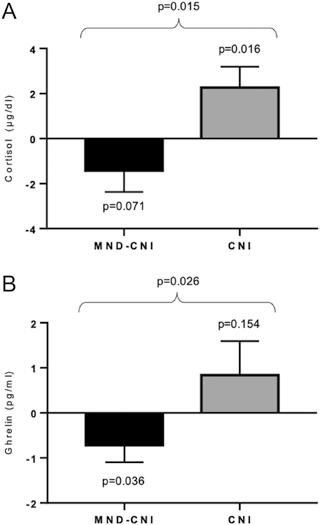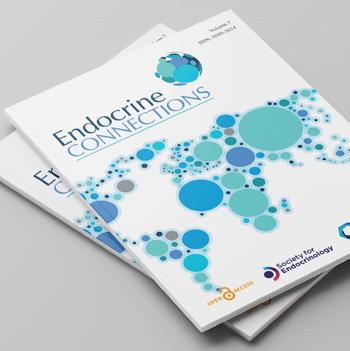
1 minute read
Research insights into... Psychoneuroendocrinology
Research insights into...
Psychoneuroendocrinology
We bring you some topical highlights from the world of research.
Impact of behavioural modification in women with PCOS and obesity
A randomised controlled trial aimed to evaluate the effect of behavioural modification on psychological well-being and weight loss in overweight women with polycystic ovary syndrome (PCOS), a group in which psychological well-being is known to be severely affected. Oberg and colleagues showed that behavioural modification can positively impact dimensions of well-being, and that personality factors could contribute to the understanding of successful weight loss.
See European Journal of Endocrinology 2020 183 1−11 https://doi.org/10.1530/EJE-200066
Cardiometabolic and psychological effects of dualrelease hydrocortisone
In this prospective trial, Dineen et al. treated 51 patients with adrenal insufficiency with dual-release hydrocortisone (DR-HC). After 12 weeks, they were reassessed. Administration of DR-HC was found to decrease blood pressure, weight and body mass index compared with conventional hydrocortisone treatment. Additionally, the group receiving DR-HC showed significant improvements in quality of life compared with those treated with immediaterelease hydrocortisone.
See European Journal of Endocrinology 2021 184 253−265 https://doi.org/10.1530/EJE-200642

Fatigue and quality of life among thyroid cancer survivors
Maki and colleagues studied the prevalence of fatigue in papillary thyroid cancer survivors without persistent or recurrent disease. About 40% of the 292 thyroid cancer survivors who were enrolled reported fatigue, measured using the cancer fatigue scale. A higher prevalence of fatigue correlated with poor quality of life. Interestingly, free tri-iodothyronine levels correlated with fatigue score and quality of life score.
See Endocrine Connections 2022 11 e210506 https://doi.org/10.1530/EC-21-0506
Mindfulness affects stress, ghrelin and BMI in childhood obesity
In this trial by López-Alarcón and coworkers to assess the efficacy of mindfulness in childhood obesity, participants were assigned to receive a conventional nutritional intervention with or without mindfulness-based intervention. After 8 weeks, children in mindfulness therapy showed a significant reduction in body mass index (BMI), fat mass, anxiety score, ghrelin and cortisol serum levels. Those studied for 16 weeks showed significantly decreased BMI after intervention, which remained lower 8 weeks later. The authors concluded that mindfulness is an adjunctive tool in therapy for childhood obesity.
See Endocrine Connections 2020 9 163−172 https://doi.org/10.1530/EC-19-0461

Changes in serum cortisol and ghrelin were statistically different between groups. CNI, conventional nutritional intervention; MND, mindfulness. Reproduced under CC BY-NC 4.0 licence (https://creativecommons.org/ licenses/by-nc/4.0) from López-Alarcón et al. (details above) ©2020 The Authors.A higher prevalence of fatigue correlated with poor quality of life [in papillary thyroid cancer survivors]. Interestingly, free tri-iodothyronine levels correlated with fatigue score and quality of life score.’

Bacila and coworkers conducted this study involving 14 tertiary endocrine centres in the UK. It included 101 patients aged 8−18 years with classic 21-hydroxylase deficiency and 83 controls.The authors demonstrated growth deficiency and weight gain in children with congenital adrenal hyperplasia (CAH) that affected the psychological well-being of these young patients.See European Journal of Endocrinology 2022 187 543−553 https://doi.org/10.1530/EJE-211109‘A higher prevalence of fatigue correlated with poor quality of life [in papillary thyroid cancer survivors]. Interestingly, free tri-iodothyronine levels correlated with fatigue score and quality of life score.’
Bacila and coworkers conducted this study involving 14 tertiary endocrine centres in the UK. It included 101 patients aged 8−18 years with classic 21-hydroxylase deficiency and 83 controls.
The authors demonstrated growth deficiency and weight gain in children with congenital adrenal hyperplasia (CAH) that affected the psychological well-being of these young patients.
See European Journal of Endocrinology 2022 187 543−553 https://doi.org/10.1530/EJE-211109
‘A higher prevalence of fatigue correlated with poor quality of life [in papillary thyroid cancer survivors]. Interestingly, free tri-iodothyronine levels correlated with fatigue score and quality of life score.’










